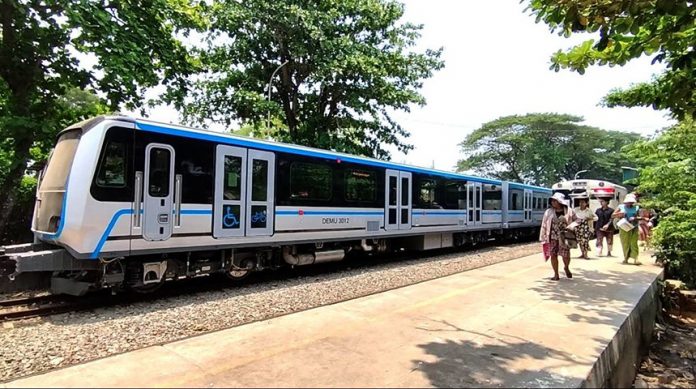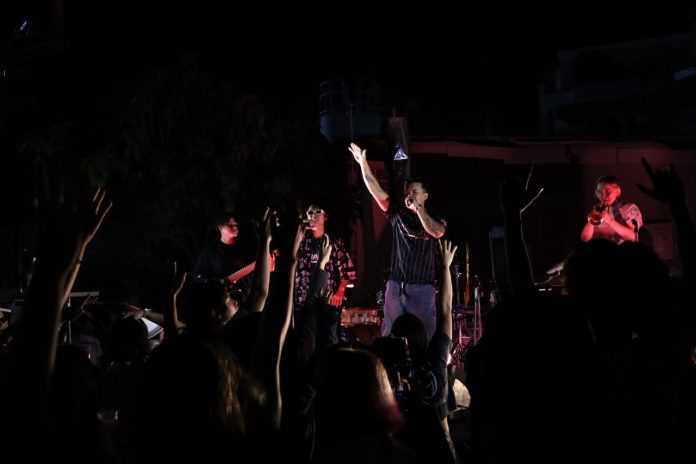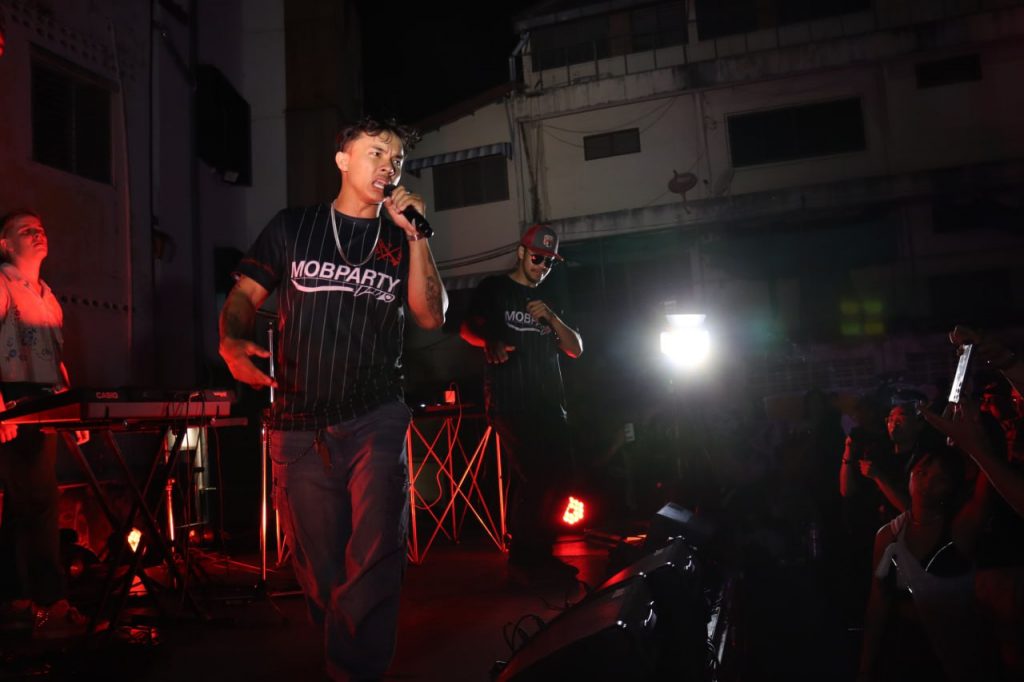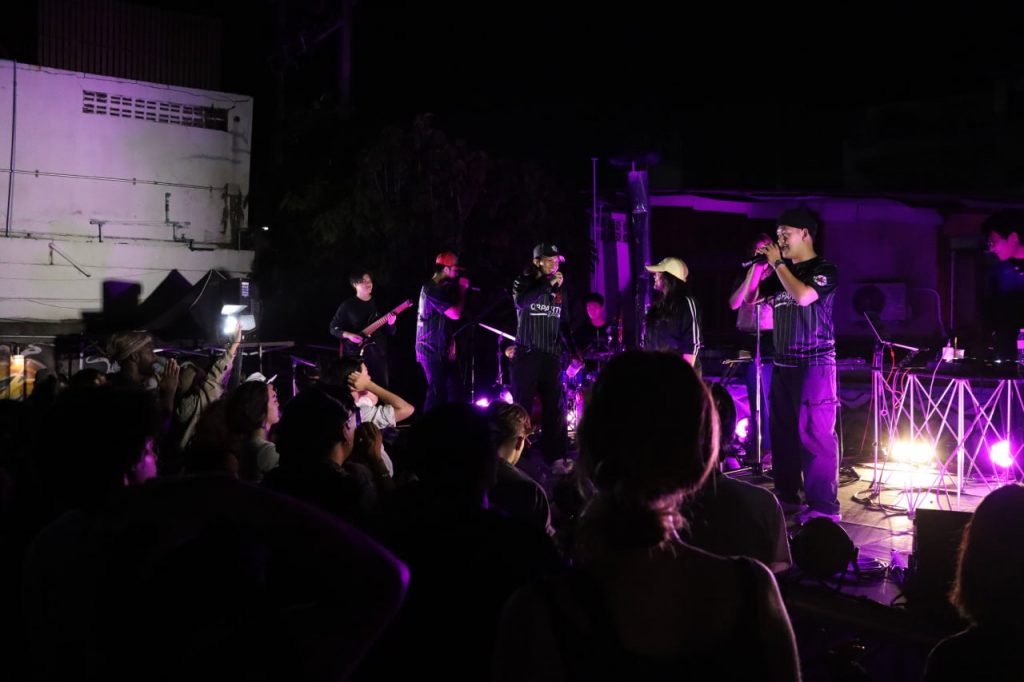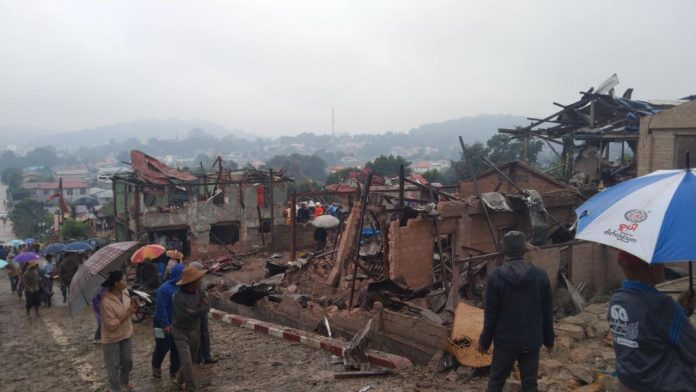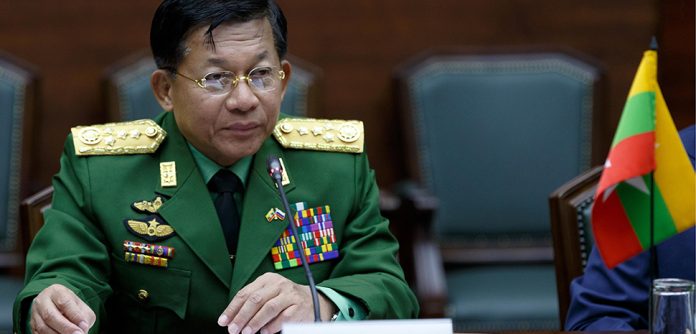Yangon’s new trains on circular railway line
Fifteen new Diesel Electric Multiple Unit (DEMU) trains began running along Yangon’s circular railway line on Friday, according to Myanma Railway officials. Passengers complained about boarding and descending the new trains, while they were on a trial run along the Yangon-Bago railway line in October.
“There was a slight delay. The city train was not fully operational. Merchants cannot load goods,” a Yangon railway station employee told DVB. Platforms at 36 railway stations in Yangon are being raised to accommodate the new trains. Platform work was expected to be completed by the end of November.
Regime media reported that an opening ceremony called “Modern Diesel Electric Multiple Unit (DEMU) Train Sets” was attended by Min Aung Hlaing at Yangon Central Railway Station in Mingalar Taung Nyunt Township. A round trip ticket on Yangon’s Circular Railway line costs 800 kyat ($0.18 USD), according to the ticketing office.
Kachin Independence Organization abolishes ‘Special Region’
The Kachin Independence Organization (KIO) announced on Thursday that it officially abolished the Kachin Special Region 1 – a designation given to an area of northeastern Kachin State along the Burma-China border – which was controlled by the pro-military Kachin Border Guard Force (BGF) until the Kachin Independence Army (KIA) took full control of the area, which is a hub for Burma’s lucrative rare earth mining, on Nov. 20.
“We will continue to rebuild and develop with a humanitarian approach, without causing economic and social harm to the local population,” stated the KIO on Nov. 28. Kachin Special Region 1 consisted of Tsawlaw, Chipwi, and parts of Waingmaw Township in Kachin State. Pangwa, the capital of the special region, was seized by the KIA on Oct. 19.
China is the primary beneficiary of Burma’s rare earth mining industry, which has become increasingly significant due to the global demand for rare earth elements (REE). The REE are used in electronics, renewable energy technologies, and military applications. The KIO added that the region established in 1994 was “detrimental to the unity of the Kachin people.”
News by Region
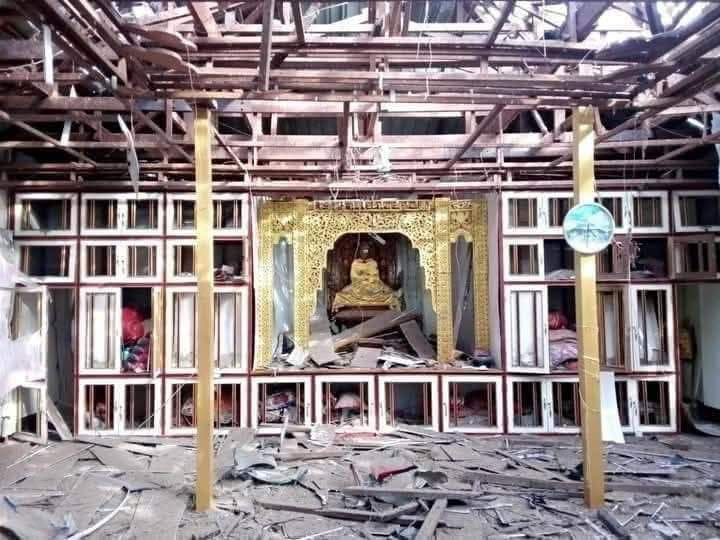
KARENNI—Residents of Linphonlay village in Loikaw Township told DVB that artillery and arson attacks were carried out by the military during fighting against Karenni resistance forces on Wednesday. The Karenni Army (KA) spokesperson Phone Naing said that nearly 30 military personnel from the Light Infantry Battalion (LIB) 80 were killed during fighting on Nov. 25-26.
“We saw smoke coming out from the burned homes from afar. The fighting is ongoing and the military is firing artillery and conducting airstrikes,” said a Loikaw resident on the condition of anonymity. Residents added that an unknown number of civilians have been killed. More than 300,000 people are living in displacement camps, according to the Karenni Interim Executive Council (IEC).
CHINLAND—The Chin National Army (CNA) told DVB that seven people, including four civilians and three Chin National Defense Force members, were killed by an airstrike carried out by the military on a clinic in Lumte village of Falam Township, located 71 miles (114 km) north of the Chinland capital Hakha, on Tuesday. Four others were reportedly injured.
“It was primarily a medical treatment facility. The casualties include two hospital staff, two local civilians, and three members of the local public defense force,” said Salai Htet Ni, the CNA spokesperson. Chin resistance forces have seized 12 towns, including Rihkhawdar on the Burma-India border, from the military since the 2021 coup.
SAGAING—The KIA and its allied People’s Defense Force (PDF) seized control of a military outpost in Homalin Township, which was used by the pro-military Shanni Nationalities Army (SNA), on Saturday. Homalin has several gold mines and is located 331 miles (532 km) north of the Sagaing Region capital Monywa.
“The outpost is located between Sagaing Region and Kachin State,” said a Homalin PDF spokesperson. He added that the fighting would intensify in the coming days as the resistance forces circled the town. The KIA-led resistance forces attacked the outpost on Nov. 22. More than 10 prisoners of war (POWs) were arrested.
SHAN—The Pa-O National Liberation Army (PNLA) told DVB that a Buddhist monk was killed and two other monks were injured when the military opened fire on a vehicle along Hsihseng-Loikaw Road in Hsihseng Township of southern Shan State on Saturday. Hsiseng is 53 miles (85 km) south of the Shan State capital Taunggyi.
“The road where the incident was carried out is inside the territory of the Burma Army. But they said it was attacked by the PDF and the Karenni Nationalities Defense Force,” said Khun Rein Yan, the PNLA spokesperson. The military claimed that the two injured monks were receiving medical treatment at Loikaw hospital. The Karenni State capital is 38 miles (61 km) south of Hsihseng.
YANGON—The Political Prisoners Network-Myanmar (PPNM) claimed that 500 prisoners, including political prisoners, were transferred from Insein Prison to Thayarwaddy Prison in Bago Region, on Saturday. It has received four transfers from Insein Prison so far this year, including nearly 1,000 political prisoners. Thayarwaddy Prison is located 67 miles (107 km) from Yangon.
“We have not yet confirmed how many political prisoners were included in the transfer. We need to watch closely as [Thayarwaddy Prison] is well-known for [its harsh treatment of] political prisoners,” Thaik Tun Oo, the PPNM spokesperson, told DVB. Family members of the prisoners transferred to Insein have complained that they are not being notified.
(Exchange rate: $1 USD = 4,490 kyat)
Read: Building bridges: A holistic approach to Myanmar’s democracy by James Shwe.


